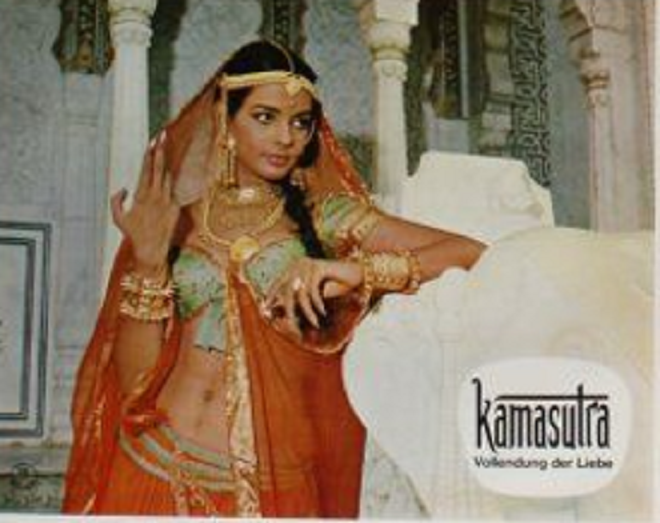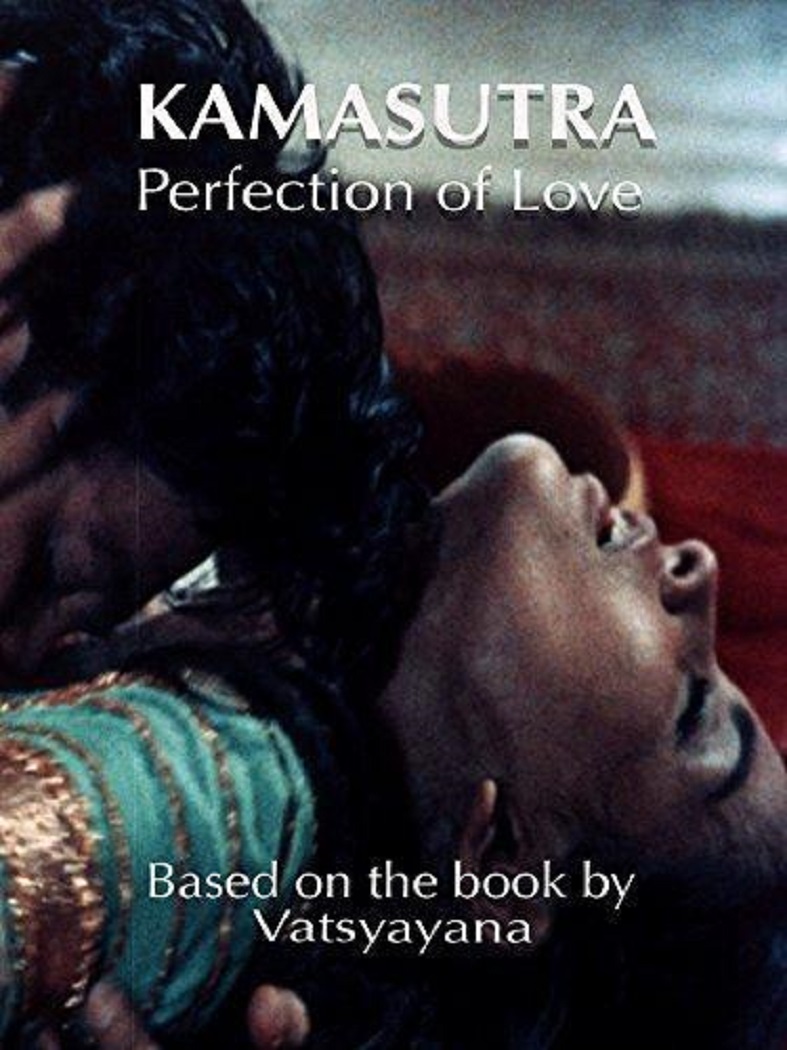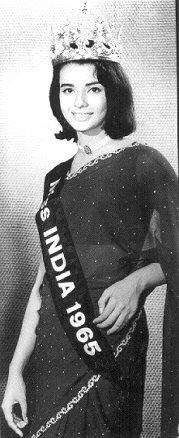Persis Khambatta
This is a collection of articles archived for the excellence of their content. |
A brief biography
Miss India World 1965 : Persis Khambatta starred in the highly popular series Star Trek. She was the brain behind Pride of India, a comprehensive compilation of all Miss India winners 1947 to 1997. Persis passed away in 1998. Newsweek called her the Sophia Lauren of India.
outlook Outlook writes
Things Of Beauty
The Sophia Loren of India and the neo-classical dancer. They careened wildly through life, deliberately choosing uncharted pathways. With their passing the world is a drabber stage.
Shameem Akhtar, B.R. Srikanthon Persis Khambatta, Protima Gauri Bedi
PERSIS Khambatta and Protima Gauri Bedi were, even in the catty world of glamour, too individualistic to be described as peas of the same pod. But they shared more than a zodiac sign or an interviewer in that naughty, old "not-a-nice-man-to-know" Khushwant Singh. They were, at life's different stages, in love with the same man—the grim-faced Kabir Bedi, among the few to attend the Pride of India's funeral, even as he anxiously waited out news about his children's mother. They shared more than a penchant for an attention-grasping bald pate, running away (Persis with her mother's consent, Protima without it) while in their teens to chase dreams, as the fashion world, and not they, discovered the two girls—one entrancing and the other statuesque—but both resplendent. Persis a mere 13 when photographer Gurmeet Singh spotted her, and Protima 17 when she caught the eye of J. Walter Thompson's Swaminathan. If Protima streaked, Per-sis toyed with the idea for Playboy magazine, which tried for over a decade to strip her after she turned down Pent -house. Both had brushes with death, Persis at 34 when the doctors gave her just three months, and Protima, who as a child swallowed laxative chocolates, ending up a proud recipient of a death certificate!
Both wallowed in spiritualism that transcended religiosity—Persis experimenting with Reiki, finding solace in Vipassana, while Protima delved into Buddhism, Rajneesh before discovering the Gita. Uncannily alike is their faith in Life's positive force. Persis chanted in every interview that "we are all part of the same energy that envelops". Protima maintained that "we are all creations of this Goddess Mahakali. We are not aware, just as the waves are all part of the ocean". A deep sense of fair play. For Persis it flowed from her belief that "if I send out positive messages, it will set a chain of healthy thought processes," while Protima believed in Karma: "If you throw a ball at the world it will come back to you with the speed with which you throw it."
Both careened madly through life, deliberately choosing uncharted pathways, thrilling in the unexpected that this course threw up. Age could have withered their resplendence a bit, but even its patina could not stale their infinite variety. Both revelled in their in-your-face femaleness, yet so supremely independent that they had more balls than all the men they knew. Both survived two marriages without carping about their men—just a mite disappointed that the males did not possess their bottomless capacity to love. Earthy, yet they flirted with the metaphysical. Persis, recovering from her broken second marriage to Sandy Naren in a New York ashram, had a vision "of snakes falling out, a flower opening up," treasuring it as a fortunate experience. While Protima, when flummoxed by Herssarghatta's intractable land, saw "a young yogi, whose unrequited love to Ram" she promised to quench through with her dream village.
Both had the tremendous ability to slum it when the going got tough. It is part of Persis lore that she landed in London with just three pounds, never saved, and when broke lived off a sack of potatoes and her chain-smoking for two weeks. Protima roughed it when she, no longer a young girl, decided to become Guru Kelucharan Mahapatra's disciple—landing up at his humble Cuttack residence with just a bedding and doing riyaz for 16 hours a day. And later, when Nrityagram, her village for student artists, was just a gleam in her eye, she braved the barren waste with its cobras and privations, concretising her dream. Both could, at any point in their lives, have stopped and said: "I have led a full life". Only, they were too busy living it to do so. When Persis came back from Hollywood, she proved predictions of a retirement wrong, plunging into her dream project—chasing each of the 50 Miss India contestants, braving insulting phone calls, and finishing her Pride of India book in one year. Even before the ink on it dried, she was planning a columnist's life, working on scripts serialising her book for television, while still nursing the goal to adopt a child. Persis was clearly entering her 50s with even more enthusiasm to seize the day. Protima, also nearing 50, may have been shattered by the suicide of her son Siddharth and the foundering of her Kuteeram resort, which she sold out. But she was, even as she sold off all her Yusuf Arakkal and M.F. Husain paintings, girding herself for a new, different life in a tent ("without walls", as always, to limit her) and preparing to swoop into the realm of Sama Veda, focussing on the science of art and music.
Their stark sense of fair play was not created for media consumption. Even in interviews where Persis sounds surprised at Zeenat Aman's rivalry as she peaked her model-ling career, or Protima's hurt at Parveen Babi's possessiveness over Bedi or Rajni Patel's wife refusing her attempts to see the dying man—these hurts were never allowed to pustulate. Outspoken—friends revelled in the frankness, while detractors cringed. Persis, even as a newcomer, spurning Sylvester Stallone's overtures, or advising Star Trek's Bill Shatner on his wig being crooked! Protima's sloping handwriting, in a note to the National Centre for Performing Arts, recording her strong view that "awards are meaningless"; and shocking purists with the advice that "it's time artists stopped eye-washing their audience about this unique collaboration with religion and started paying attention to aesthetics". To snide remarks that beyond her Star Trek glory she had only "walk-on parts" in Hollywood, Persis had an unfailing pun-chline: that she was among the fortunate three per cent in Hollywood who always had work for over a decade. At the height of her dancing career, Protima could describe herself with touching candour as a "half-baked dancer", but would proudly list among her achievements her introduction of "intelligent lighting for solo dancers".
Many of the stories that chase Protima may have been apocryphal, but she teased life, making it part of her legend. The child of the flower power generation, chain-smoking and unclad for the most part, revelling in a 36-inch bustline untrammelled by bra, preferring halters or even snakes coiled around her breasts, who announced to all those who cared to hear that she did not know to whom she lost her virginity since she "never used men as landmarks in her life", except the few blessed like Kabir Bedi, Pandit Jasraj, Rajni Patel and Mario Cropf. Or how, she would visit discotheques with a cherry-stem curled around her ear, teasing the men with the inevitable: "Now who wants to pop my cherry". Also part of her saga is the tale of how she landed up in the wrong auditorium, endured an Odissi recital, tumbling backstage, shocking the morose Mahapatra with her green-grey dyed hair, insisting that she become his disciple. Taking on his challenge that he would accept her if she reached Cuttack before he did, she dunked her children in a hostel, took a flight and a bullock cart to reach the Mahapatra residence on time. The stories are a legion—Vijayapat Singhania, her Nrityagram benefactor, finding her seated on a bed in the barrenness, with a cobra for company under it. Or how she walked all of Hesarghatta's 500 acres to locate and stake out 10 acres for her village.
SHE was preparing to be a "sexy old woman", but could discuss death comfortably, urging "no crying please" because "I believe death is an entry into the real world". But her friends are unwilling to accept it just yet, be it painter Yusuf Arakkal, danseuse Prathiba Prahlad, or Lynn Fernandes, managing trustee of the dance village. Or Prasad Bidappa, fashion guru and friend, who says: "I hope she comes back by a miracle". Or well-known filmmaker M.S. Sathyu who is hoping, "to me she is not lost" and praying, "she will be back".
Persis was that lady with Marlene Dietrich legs, listed among the 10 most beautiful women in the world by the Queen's photographer Patrick Litchfield, but she cherished with child-like enthusiasm Indira Gandhi's description of her as "the Pride of India". Toasted by Newsweek as the Sophia Loren of India, celebrated by Esquire as "a screen image so stunning it was hard to believe she was of this flesh". Yet, friend Meher Castellino, writing in tribute, remembers her as the one who "loved life. In spite of all the glamour of Hollywood, she was a simple Parsi girl, very religious and down-to-earth". The only Indian to have been invited to present an Oscar award, the Air-India girl and the Ilia of Star Trek worked with Sidney Poitier, lunched with Sir Lawrence Olivier, was friends with Michael Caine, Barbara Streisand and Robert De Niro. Yet, moved by the plight of the quake-hit in Latur, she organised a fund-raising event in Hollywood, not taking a single paisa for the effort she poured into it. The simple girl who kept her promise with her beloved mother, visiting India every year. Who missed a Bond film because she had promised to return home after the Miss World contest. The gorgeous princess, with an eye cocked on the Cinderella hour. But for this date with death she was, tragically, too early.
For on that August day, India lost two dazzling, individualistic women whose lives strangely criss-crossed. Both of whom died unexpectedly a few months short of their 50th birthdays—one of a heart failure, the other lost in a landslide—within 24 hours of each other.








